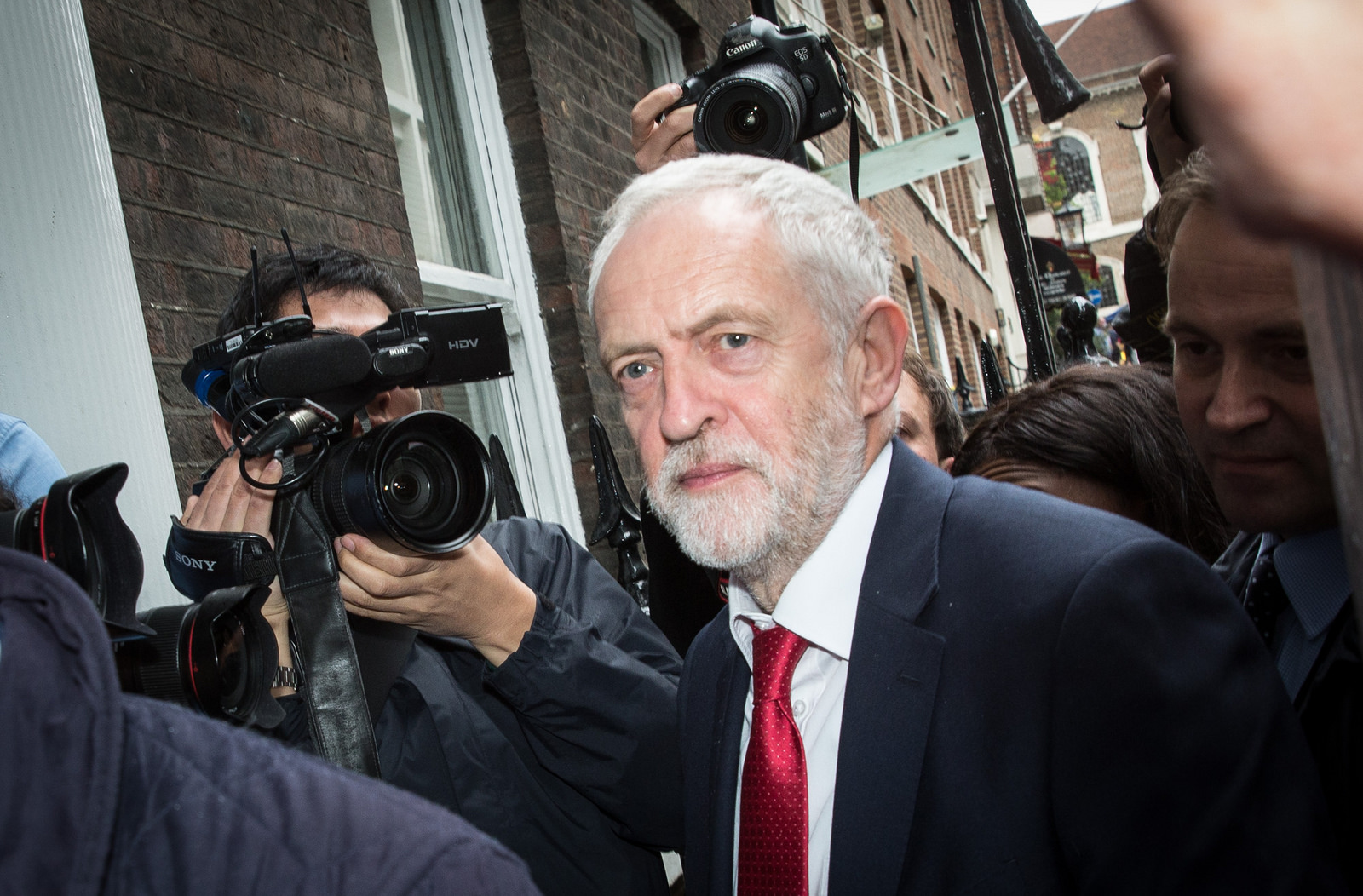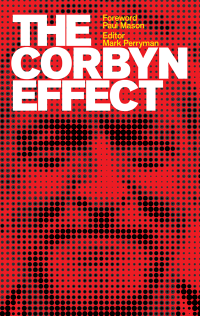
In the immediate aftermath of the general election, Labour stood at an incredible 46% in the opinion polls, with an 8% lead over the Conservatives: a situation which few ever thought likely to materialise. But if this is not to prove a temporary high-water mark, and a missed historic opportunity, then several key challenges must be overcome.
May won the election because she did succeed in winning over a core section of Labour’s traditional constituency: older working-class voters in smaller towns in the post-industrial areas and on the coast. For them, Jeremy Corbyn’s metropolitan cosmopolitanism is a source of incomprehension and hostility. The greatest challenge for Labour’s new organising model will be persuading these communities that neoliberal capitalism – rather than social liberalism, immigration and Europe – is the source of their woes. This will require an effort in public political education and socialist proselytisation such as Labour has not undertaken since the 1940s.
Figures on the right of the party are already claiming loudly that only the adoption of an explicitly conservative position on defence and security (and, of course, Brexit) can hope to recover Labour’s position in these ‘traditional’ working class communities. This is wrong-headed. Firstly, it simply ignores the reality that Labour actually gained votes in most of those communities, although the Tories gained more. Secondly, it ignores the fact that the Tories winning support there is not a new phenomenon. There is a long tradition of working class-conservatism and Toryism in this country. Labour has only ever prospered by beating it politically and winning over its adherents to more progressive positions.
At the same time, if it is to undertake such a task without alienating or fragmenting its existing electoral coalition, then Labour will have to keep appealing to youth, to the metropolitan left, and to highly-educated, self-consciously modern, affluent professionals. It is doubtful that it will be able to do this if it ties itself to a programme which could have been implemented in 1951. There was nothing in the June 2017 manifesto that a 21st century socialist should object to, but there wasn’t much to get excited about either. Co-operative housing, workers’ self-management, decentralised media and democratised public services should surely be key features of a socialism appropriate to the era in which digital platform technologies are becoming central to the organisation of many forms of social life. These ideas are well known to the Labour leadership, but they weren’t in the manifesto. They need to be next time.
It may well be that Labour’s greatest challenge will be to hold together a disparate and diverse coalition while the most divisive issue in British politics since the 1930s plays out: Brexit. Whatever the outcome of the Brexit negotiations, Labour will have to convince all of its constituencies that there is something in it for them. Whether or not a political strategy of retaining all the economic benefits of single-market membership without any of the political costs is viable will depend not on the balance of payments or the future rate of immigration, but on a fundamentally political question: what is our strategy for defeating neoliberalism in Europe? If ‘lexit’ (left-wing Brexit, which some of Corbyn’s closest advisors were hoping for long before the referendum) is to become a plausible reality, then it will have to be explained how a pro-lexit Labour government would propose to deal with the inevitable hostility of the entire European Union (and the US, WTO, IMF, and, in all probability, China) to its project. Those hoping to forestall Brexit altogether will have to answer much the same question, and explain how remaining within the EU would help.
Internally, the issue which will be most divisive and implacable for Labour is party reform. Members are frustrated by an archaic internal bureaucracy whose main function and intention seems to be to obstruct whatever desires they may have to hold officials or elected representatives accountable. Momentum ran the most successful political campaign in living memory despite that bureaucracy, not because of it. In the process, it has demonstrated what can be achieved when members are given tools with which to self-organise rather than being presented at every turn with institutional obstacles to them doing so. MPs and party officials, the entrenched networks of the Blairites and the old right, are rightly terrified of letting the members have any more power; given half a chance, the members would treat them with the contempt that so many of them have so evidently earned, with their constant and simply wrong-headed efforts to undermine Corbyn’s leadership. It is hard to see how Corbyn and his followers can achieve everything that they want to, without some reckoning coming sooner or later. There is very little appetite for internal conflict among Corbyn supporters or Momentum members, however, most of whom just want to be able to organise as they see fit to further the party and its cause. How many of the right-wing refuseniks will accept the new historical reality, and how many of them will have to be forced into doing so, remains to be seen, and will be largely up to them.
Beyond the party, Corbyn himself seems well aware that only a full-scale social movement is likely to be able to bring about and sustain political, economic and cultural change on the scale that he and his supporters seek. Radical reform of the party will be one necessary prerequisite for such a movement developing critical mass, but it will not be a sufficient one. Parties and movements are simply not the same kind of thing. Parties fight elections. Movements organise in communities, challenge widespread cultural assumptions, develop dynamic internal intellectual cultures, and disseminate their ideas and their practices at multiple levels of society. These are not mutually-exclusive types of activity, but they are also not simply interchangeable.
The highly decentralised modes of organisation and campaigning pioneered by Momentum, and the vision of a future society implied by the fantastic, innovative document, Alternative Models of Ownership, all seem to point towards the possibility of a radically democratic political movement supporting the most radical government in British history: a prospect which looks more likely now than at any time since 1981. For that to happen, a movement committed to radical democracy in many areas of social life – education, local government, the media, parliament – will have to develop, and to acquire a dynamism which no centralised party leadership can contain. For example, demands for local selection of MPs will carry far more authority if we are seen to campaign for democracy in other local institutions as well.
A large-scale campaign of political education, well beyond the current level of political debate in the Labour party, would be required to enable activists to achieve real effectiveness in challenging neoliberal assumptions in their everyday communities. All successful social movements have changed attitudes by promoting more sophisticated ways of understanding certain issues than the ones which went before them. The endemic, historic anti-intellectualism of English political culture remains an obstacle which Corbynism will have to overcome if it is to catalyse the movement that it needs, in order to realise its goals.
It is quite clear that not all of Corbyn’s supporters or close advisors share this vision, preferring a centralised party and a statist form of social democracy. These two tendencies can co-exist, and even sustain a productive tension, for a while, as long as the work of displacing neoliberal hegemony requires them to co-operate. The June 2017 general election would not have been such a success for Labour if they had not done so. But sooner, or later, Corbynism as a movement and as a project for the party is going to have to decide whether it wants to simply relive Labour’s glory days of the mid-20th century, or truly re-imagine socialism for the 21st.
Jeremy Gilbert is Professor of Cultural and Political Theory at the University of East London, and editor of New Formations journal.
This article is an edited extract of Jeremy Gilbert’s chapter ‘The Absolute Corbyn’ in The Corbyn Effect, edited by Mark Perryman (Lawrence & Wishart 2017). Available here for £15. Enter NOVARA at the checkout for 20% off.
